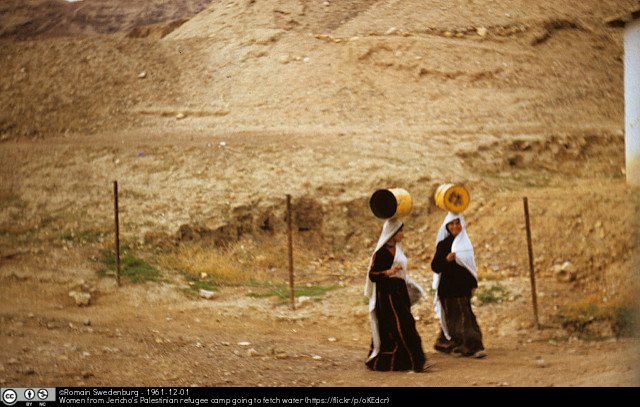Palestinian Refugees: A Gendered Perspective
DOI:
https://doi.org/10.31273/eirj.v3i1.127Keywords:
Palestine, women refugees, feminism, feminist methodology, Zionism, Palestinian refugee campsAbstract
This article argues that the situation of Palestinian refugees is still relevant till this day. There are around five million refugees living in neighbouring Arab countries, such as Lebanon, Jordan, Syria and Egypt, as well as neighbouring areas in Palestine itself, like the West Bank and Gaza Strip, under very precarious conditions. Their situation is extremely unstable as any changes in the region can influence them directly.
The need to address this issue is particularly important because Palestinian refugees (as well as internally displaced Palestinians) have been both historically and politically marginalised. In particular, I will argue for a need to gender the debate around the Palestinian refugees, because the distinct experience of women Palestinian refugees has been overlooked within this context. Most literature has focused on the Palestinian refugees as a holistic population, which assumes all refugees share the same struggle. However, understanding the position of women within the context of the refugees and the unique struggles they face is essential to understanding their particular experiences as refugees and in highlighting their differential needs; this is why a feminist perspective is needed within the field of refugee studies.
This article is based on a feminist journey drawing on research interviews with female Palestinian refugees in camps in Jordan, and with Syrian Palestinian women in Turkey, Jordan and Europe.
Downloads

Published
Issue
Section
License
Authors who publish with this journal agree to the following terms:
Authors retain copyright and grant the journal right of first publication with the work simultaneously licensed under a Creative Commons Attribution License (CC-BY), which permits use and redistribution of the work provided that the original author and source are credited, a link to the license is included, and an indication of changes which were made. Third-party users may not apply legal terms or technological measures to the published article which legally restrict others from doing anything the license permits.
If accepted for publication authors’ work will be made open access and distributed under a Creative Commons Attribution (CC-BY) license unless previously agreed with Exchanges’ Editor-in-Chief prior to submission.
Authors are able to enter into separate, additional contractual arrangements for the non-exclusive distribution of the journal's published version of the work (e.g., post it to an institutional repository or publish it in a book), with an acknowledgement of its initial publication in this journal.
Authors are permitted and encouraged to post their work online (e.g., in institutional repositories or on their website) prior to and during the submission process, as it can lead to productive exchanges, as well as earlier and greater citation of published work. (see: The Effect of Open Access)
